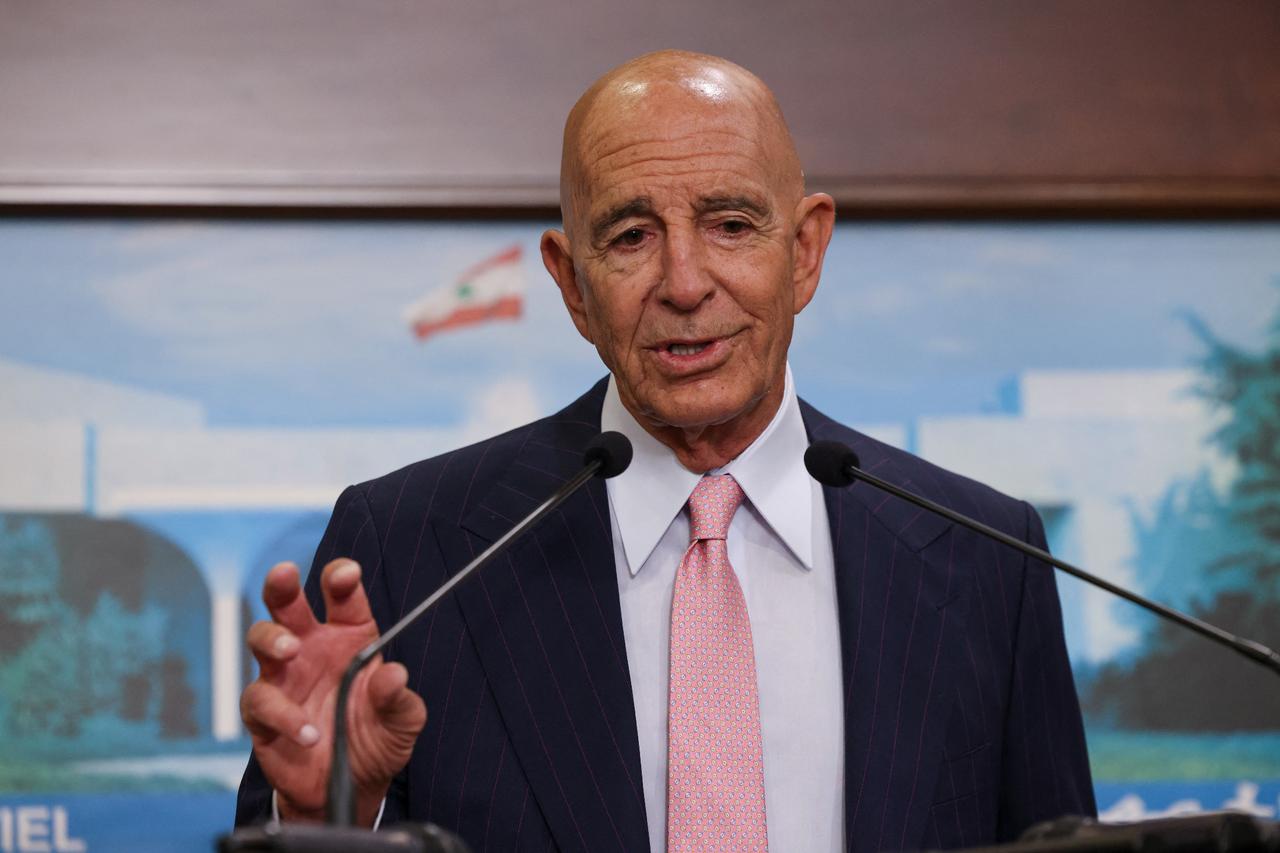
U.S. Ambassador to Türkiye and special envoy for Syria Tom Barrack said Tuesday that Israel has agreed to withdraw from southern Lebanon if Hezbollah gives up its weapons, describing the development as “historic.”
Speaking after talks with Lebanese President Joseph Aoun in Beirut, Barrack said Israel “will withdraw in the same cadence” as Hezbollah disarms itself.
He added that Lebanon will present a government plan on Aug. 31 aimed at persuading the group to surrender its arsenal.
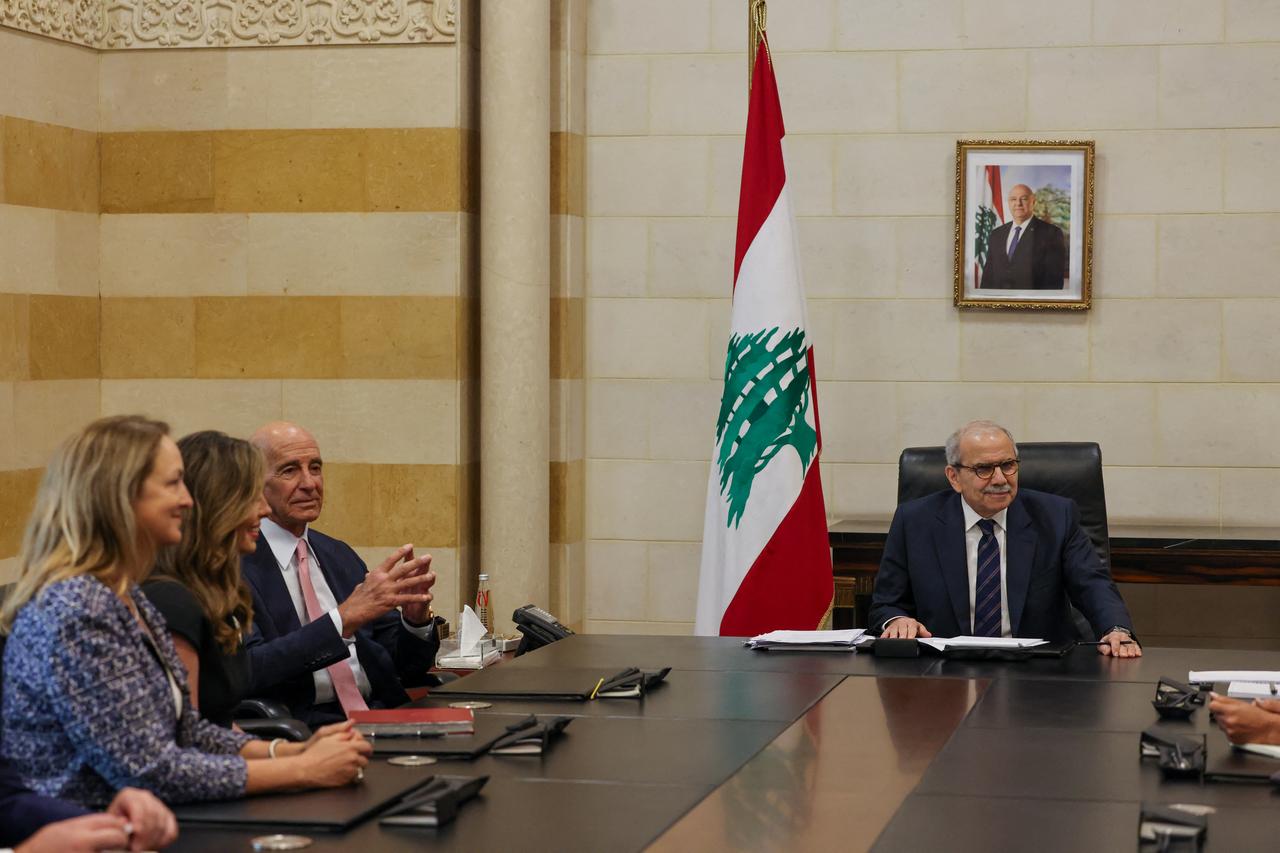
The Lebanese cabinet, earlier this month, approved a policy to consolidate all arms under state authority, instructing the army to draft a framework by the end of August and begin implementation before the close of 2025.
Hezbollah rejected the move as a “grave sin.”
Barrack emphasized that the Lebanese proposal would not rely on coercion.
“The Lebanese army and government are not talking about going to war. They are talking about how to convince Hezbollah to give up those arms,” he said, noting that economic considerations for tens of thousands of Hezbollah fighters must be addressed.
He said Gulf countries, including Qatar and Saudi Arabia, had signaled readiness to help fund alternatives for communities long dependent on Iranian support.
Washington is also discussing the creation of a new “economic forum” to provide sustainable livelihoods in southern Lebanon.
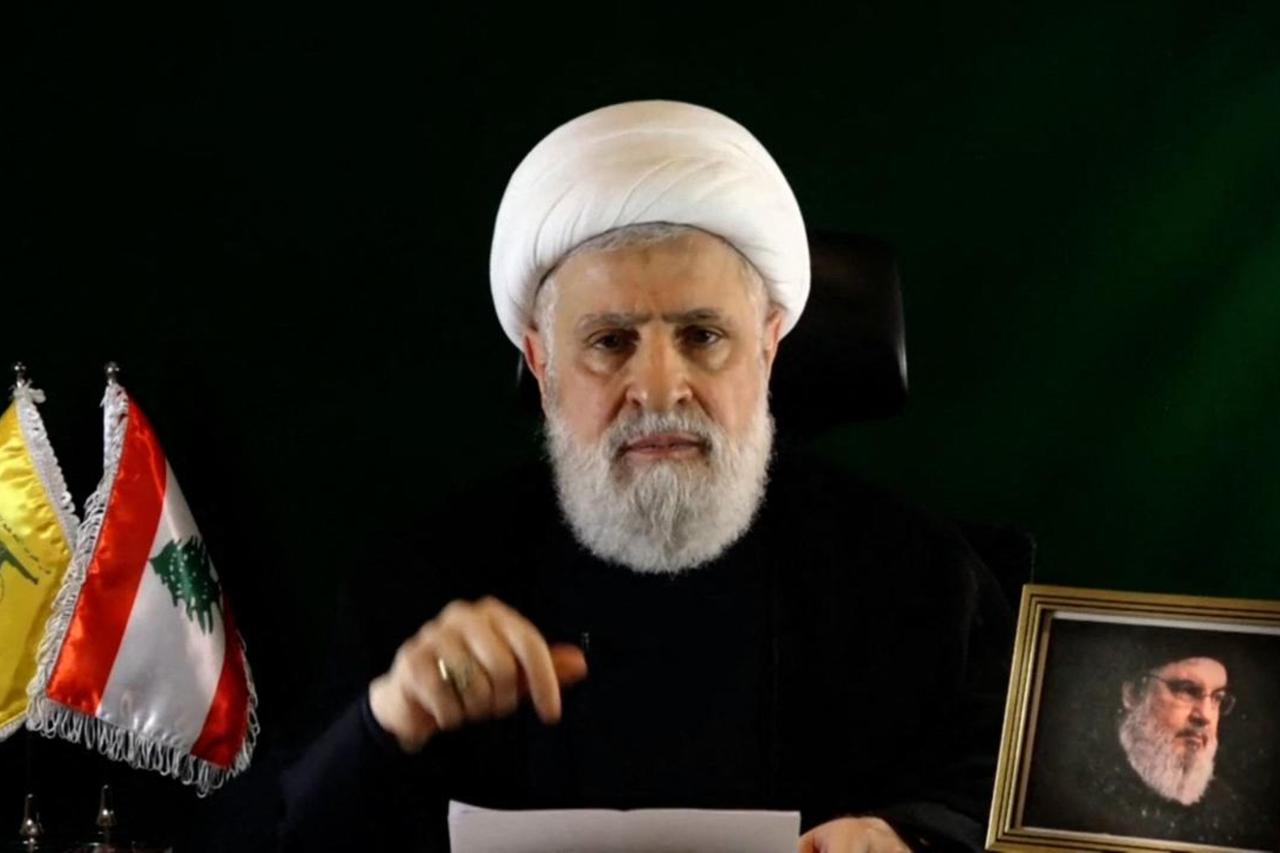
In a recorded speech on Monday, Hezbollah deputy leader Naim Qassem denounced the government’s decision and ruled out a parallel framework linking Israeli withdrawal to disarmament.
“Let them implement the ceasefire agreement … then after that we will discuss the defense strategy,” Qassem said, referring to the U.S.-brokered Nov. 27 truce that obliges Lebanon to disarm non-state groups.
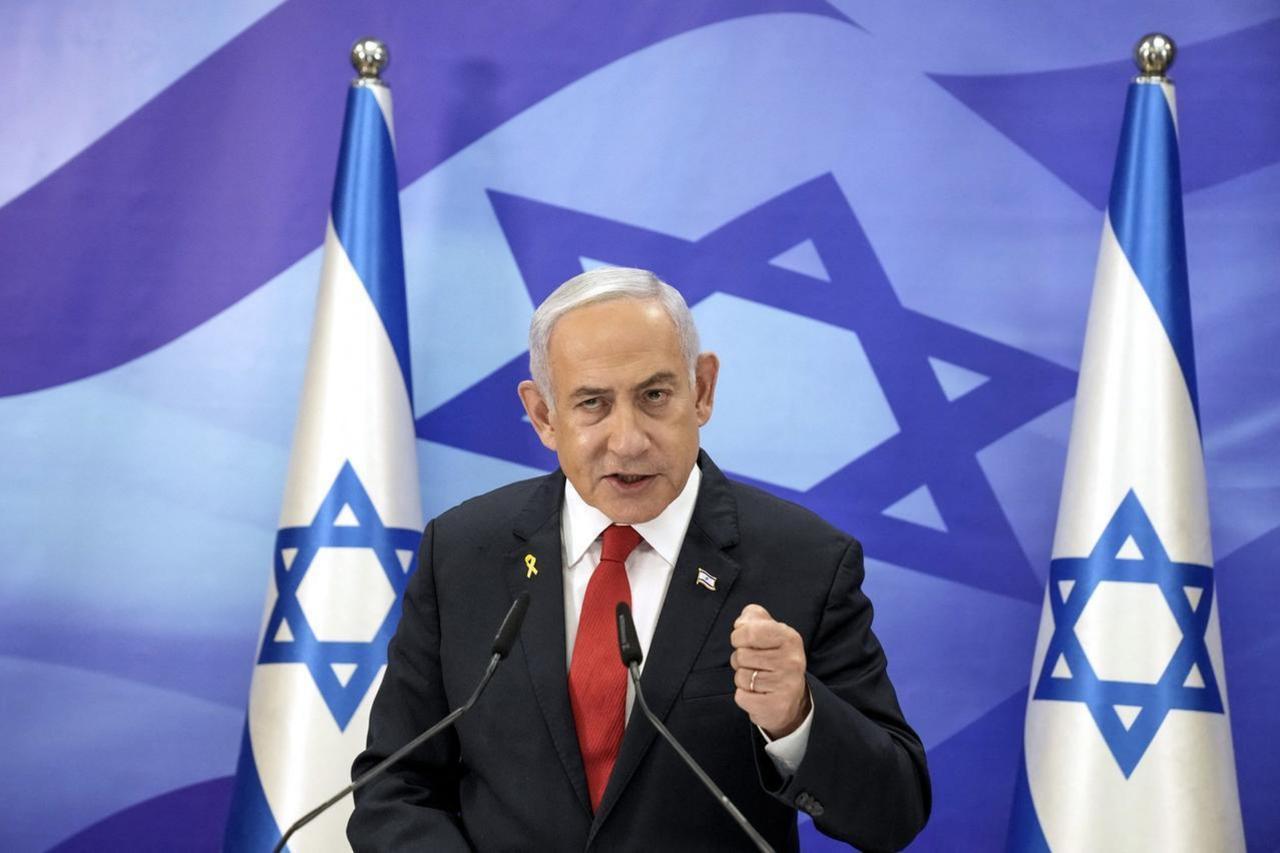
Barrack said Israeli Prime Minister Benjamin Netanyahu had assured him during talks in Tel Aviv that Israel does not intend to maintain its presence in Lebanon.
“We don’t want to occupy Lebanon. We’re happy to withdraw, and we will meet those expectations as soon as we see what the plan is to actually disarm Hezbollah,” Barrack quoted Netanyahu as saying.
Israel currently retains positions inside Lebanon and continues to launch strikes against what it says are Hezbollah fighters and weapons depots.
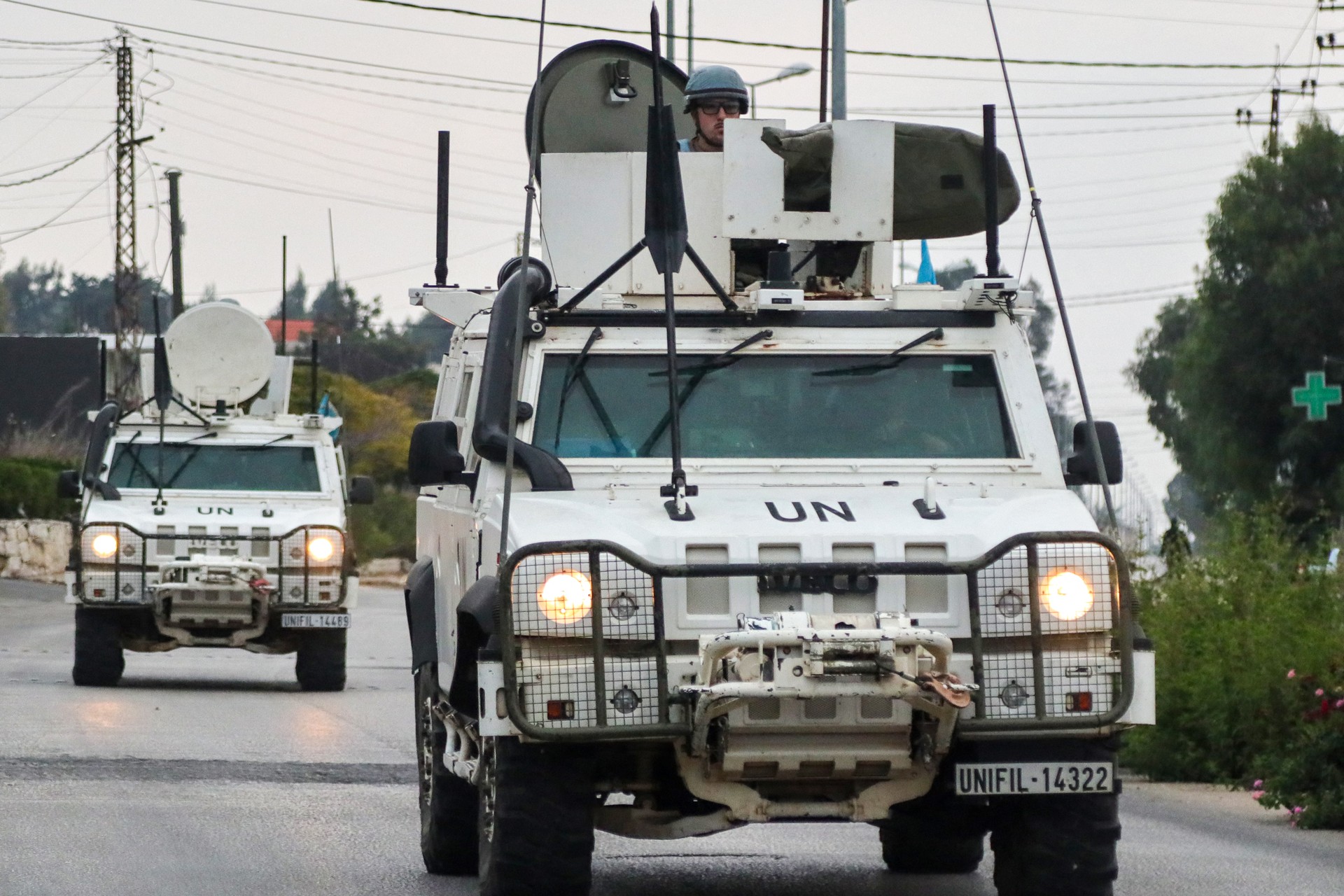
The U.S. envoy confirmed that Washington would push to renew the UN peacekeeping mission UNIFIL for another year to support stability in southern Lebanon.
He also stressed that Syrian President Ahmad al-Sharaa “has no interest in having an adversarial relationship with Lebanon in any way,” signaling possible space for regional de-escalation.
Lebanese Prime Minister Nawaf Salam said his government had embarked on an “irreversible path” to place all arms under state control, with the army due to present its detailed plan by Sunday.